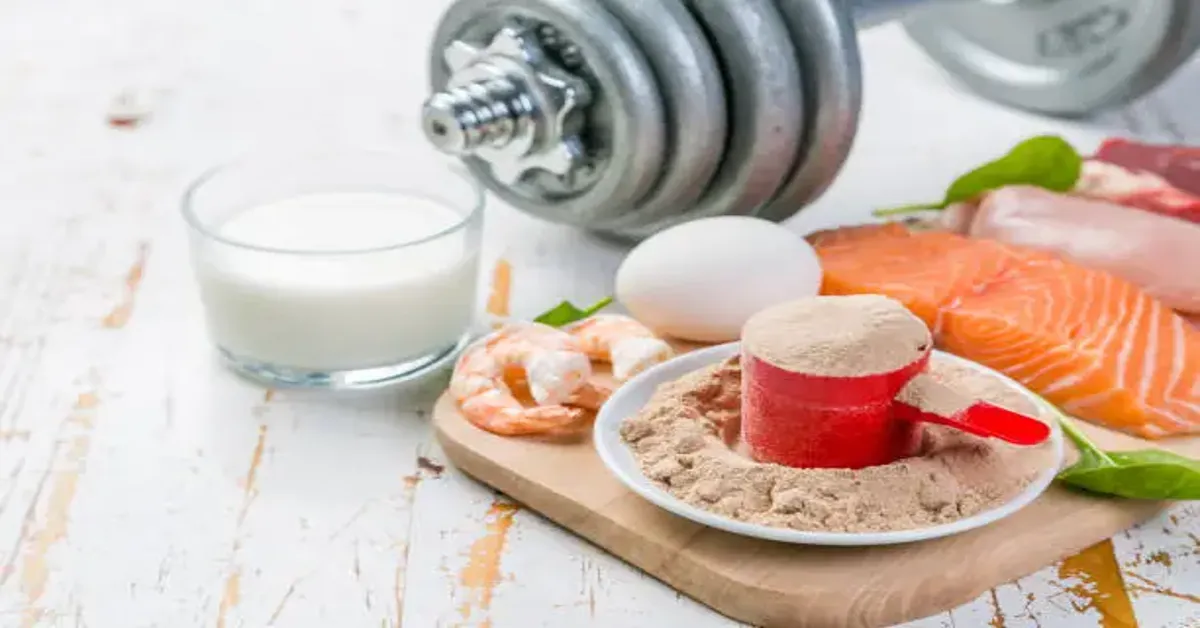If you’re serious about building lean muscle or improving post-workout recovery, understanding how whey protein stimulates muscle protein synthesis (MPS) can be a game-changer. Backed by science, whey protein is more than just a gym staple — it’s one of the most efficient proteins when it comes to repairing and growing muscles. But what makes it so effective?
Let’s break down the science in simple terms.
What Is Muscle Protein Synthesis (MPS)?
Muscle Protein Synthesis is the biological process through which your body repairs and builds new muscle tissue after stress, such as resistance training or intense workouts. Think of it as the “rebuilding phase” — your muscles break down during training (muscle protein breakdown, or MPB), and MPS is the mechanism that helps rebuild them stronger.
Muscle growth occurs when MPS exceeds muscle breakdown over time — and dietary protein plays a crucial role in this balance.
Why Whey Protein? The Fast-Acting Formula
Whey protein stands out due to its:
- Complete amino acid profile – contains all 9 essential amino acids (EAAs).
- High leucine content – the key amino acid for triggering MPS.
- Rapid digestion – quickly absorbed, making it ideal post-workout.
Once consumed, whey rapidly delivers amino acids into your bloodstream, spiking plasma amino acid levels — a key trigger for mTOR pathway activation, which controls muscle protein synthesis.
Leucine: The Muscle-Building Signal
Among the amino acids in whey, leucine is the MVP.
Studies have shown that a leucine threshold (~2–3 grams per dose) must be reached to “turn on” the switch for muscle protein synthesis. Whey protein naturally contains a high leucine content (about 10–12% by weight), giving it an edge over other protein sources.
Leucine activates the mTOR (mammalian target of rapamycin) signaling pathway — a central regulator of muscle cell growth and repair.
In short: Whey protein → Leucine spike → mTOR activation → Increased MPS
Whey Protein vs Other Protein Sources
Not all proteins stimulate MPS equally. Here’s how whey compares:
| Protein Source | Digestion Speed | Leucine Content (per 25g) | Effect on MPS |
| Whey Protein | Fast (~60–90 mins) | ~2.7g | ⭐⭐⭐⭐ |
| Casein Protein | Slow (~6–8 hrs) | ~2.3g | ⭐⭐ |
| Soy Protein | Moderate | ~1.9g | ⭐⭐ |
| Egg Protein | Moderate | ~2.1g | ⭐⭐⭐ |
Whey isolate and whey concentrate both support MPS, but whey isolate digests faster and contains more protein per gram — making it ideal post-exercise.
Optimal Timing and Dosage for Muscle Growth
Best Time to Take Whey Protein
- Within 30–60 minutes post-workout for maximum MPS stimulation.
- Optionally in the morning or between meals to maintain a positive protein balance.
Recommended Dosage
- 20–40g per serving, depending on body size and training intensity.
- Aim for 2–3g leucine per dose to effectively trigger the mTOR pathway.
Common Myths About Whey Protein and Muscle Synthesis
Myth 1: More whey = more muscle
➤ Truth: MPS is capped at a certain protein intake. Mega-dosing doesn’t increase muscle synthesis beyond the optimal leucine threshold.
Myth 2: Whey protein is only for bodybuilders
➤ Truth: Whey benefits anyone engaging in strength training — including beginners, older adults, and endurance athletes.
Myth 3: You must take whey immediately post-workout
➤ Truth: Timing matters, but total daily protein intake is more important than strict timing windows.
Whey Protein Price in Pakistan: What to Expect in 2025
For fitness enthusiasts in Pakistan, the price of whey protein can vary widely depending on brand, type, and origin (imported vs. local).
Here’s a quick breakdown of what you can expect in 2025:
| Product Type | Price Range (PKR per 1kg) | Notes |
| Whey Protein Concentrate | ₨9,000 – ₨13,000 | Most affordable, moderate protein content |
| Whey Protein Isolate | ₨13,000 – ₨18,000 | Higher purity, ideal for low-carb/keto |
| Hydrolyzed Whey | ₨15,000 – ₨20,000+ | Fastest absorbing, premium option |
| Local Pakistani Brands | ₨7,000 – ₨11,000 | Cost-effective, varies in quality |
| Imported Brands (ON, MyProtein, Dymatize) | ₨13,000 – ₨22,000+ | Best quality, but taxed on import |
Tips to Get the Best Value:
- Buy from verified online stores like DarazMall, NutroJenix, or authorized resellers.
- Check for lab reports or third-party testing to ensure authenticity.
- Compare cost per serving rather than just total price — some products have fillers or lower protein per scoop.
Pro Tip: Always look for leucine content and serving size to calculate real cost-effectiveness for muscle protein synthesis.
FAQs: How Whey Protein Stimulates Muscle Protein Synthesis
Q1: Is whey protein better than food for MPS?
A: Whole foods are essential, but whey offers precision — fast absorption and targeted amino acid delivery make it ideal around workouts.
Q2: Can older adults use whey protein for muscle maintenance?
A: Yes. Whey protein helps counteract age-related muscle loss (sarcopenia) by supporting muscle repair and strength in seniors.
Q3: Is plant protein as effective as whey for MPS?
A: Not exactly. Most plant proteins are lower in leucine and less bioavailable, but combining sources (e.g., pea + rice) can close the gap.
Conclusion
Whey protein is a fast, efficient, and research-backed supplement for stimulating muscle protein synthesis. Its rich leucine content, rapid digestion, and ability to activate the mTOR pathway make it a top-tier choice for athletes and everyday lifters alike.
If your goal is to build lean muscle, recover faster, and support overall performance, understanding how whey works at a cellular level can give you an edge — and help you train smarter, not just harder.

